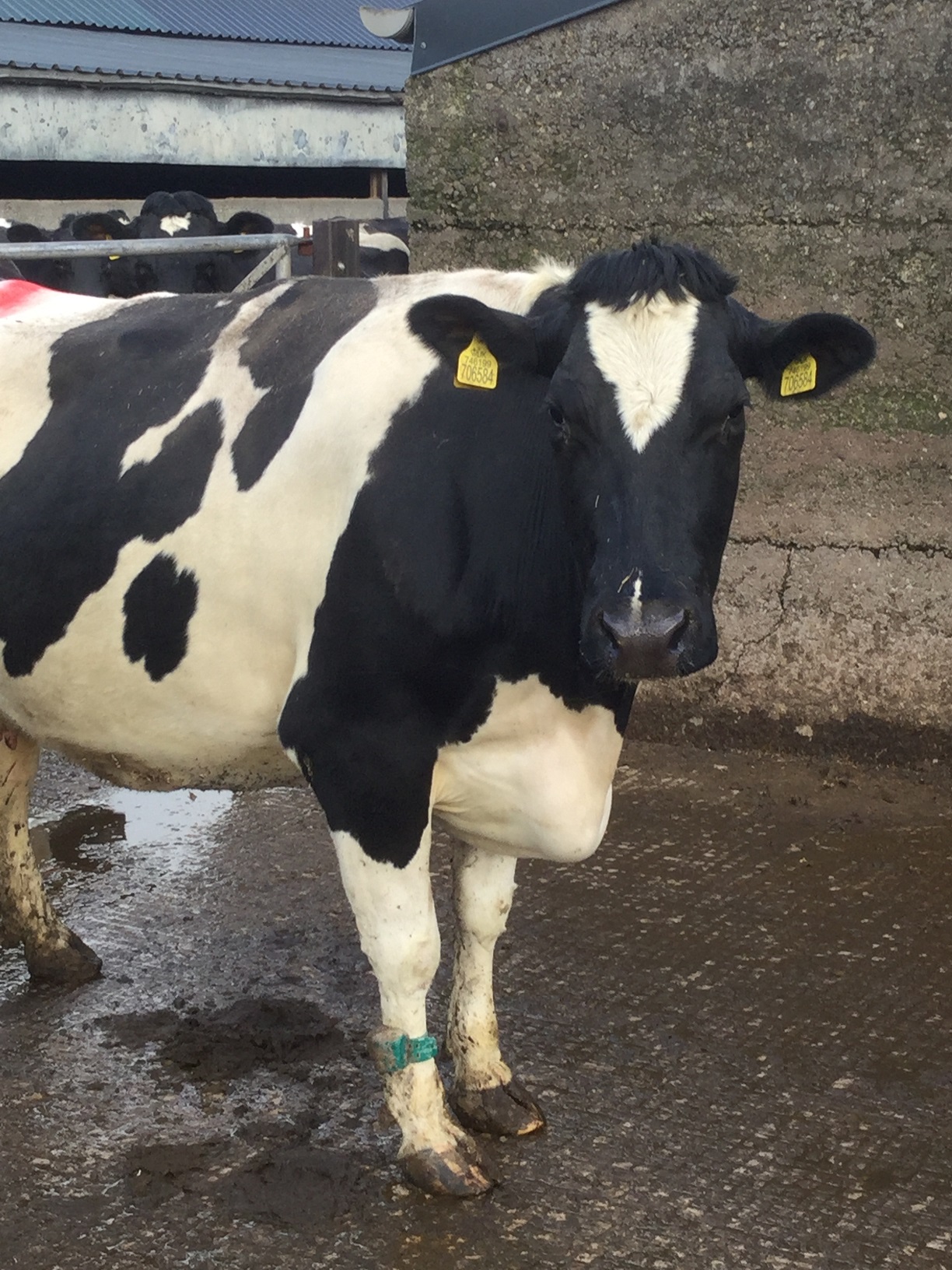Farming
Farmers who knowingly kept cattle with bovine TB on farm fined

THREE members of a Pembrokeshire farming family have been sentenced for deliberately swapping cattle ear tags; actions that saw animals with Bovine Tuberculosis (TB) reactors remain on the farm.
Bovine Tuberculosis is a zoonotic infection that can infect many species, including humans and wildlife, though transmission to humans in the UK is very rare as a result of control measures in place across the agricultural and food industries.
The actions of Edward, Charles and Henry Hartt displayed widespread illegality and created an unacceptable and serious risk to animal health.
The Hartts operate a large scale dairy and beef farming enterprise – Messrs EW Hartt & Sons – at Longford Farm, Clynderwen, comprising about 2800 cattle.
The three men were sentenced at Swansea Crown Court on Monday, March 4th for offences committed under the Cattle Identification (Wales) Regulations 2007; legislation which underpins cattle management, disease control and traceability systems put in place to ensure the safety of the entire farming industry.
All three defendants had previously pleaded guilty to 12 counts on March 25th, 2022.
The court heard that where higher value cattle had tested positive for TB and would be valued for compensation, poorer quality animals would then be sent for slaughter in its place.
This meant that infected animals were kept on the farm with a significant risk of spreading the disease to other animals and jeopardising the success of the TB eradication programme.
Their retention would undoubtedly allow the disease to persist on farm, slowing the progress of eradication within the herd and the general cattle population and increasing costs to the Welsh Government and taxpayer.
The practice would also have resulted in the slaughter of healthy animals not actually infected with TB.
It was also determined that a portion of farm’s milk would have come from TB reactors that should have been removed, which under food safety legislation was banned from entering the food chain.
Where poorer cattle tested positive, evidence showed that they were substituted at valuation for higher value animals, attracting a higher level of compensation – but with the more valuable animals subsequently retained and the lower value TB reactors sent for slaughter.
Each defendant was fined a total of £24,000 – £2,000 for each count on the indictment.
The sentencing reflected the heightened TB risk of reactors remaining on farm, TB lesions present in cattle and a clear risk that misidentified animals could have entered the food chain.
As well as the significant fine, associated action had been taken against the defendants under the Proceeds of Crime Act 2002 (POCA).
This legislation was introduced with the aim of recovering assets, including money, acquired through criminal activity.
The use of POCA is particularly pertinent when it is so manifestly in the public interest to ensure criminal activity is not rewarded.
The criminal benefit arising in connection with the offending would have been derived through a mix of pathways.
This included TB compensation payments, sale of illegal stock, sale of milk from illegally retained stock, as well as the wider benefits gained by the farming enterprise.
The Hartts’ actions enabled a steady and continual expansion of the business, on a stronger financial footing, to the detriment of other farms in a competitive market.
This resulted in confiscation orders of £217,906 against each defendant jointly and severally to reflect the ‘criminal benefit’ associated with the offending.
The court also awarded the Council costs of £94,569.
The case brought by Pembrokeshire County Council followed an in-depth investigation by officers from the Council’s Public Protection Animal Health and Welfare Team, working in conjunction with the Animal and Plant Health Agency veterinary officers and other regulatory partners.
The investigation was triggered following the identification of anomalies at the farm in June 2019.
The subsequent investigations were complex and protracted over the remainder of the year, involving a number of inspections and visits, DNA sampling of milking cows, detailed audit and cross-referencing of farm records, ear tag and freeze brand (markings on the animal) checks, post-mortems and blood samples.
In one instance remarked upon by the Judge, the freeze brand of a milking cow was altered.
It was later discovered that her ear tags had been changed twice. DNA testing later proved that the animal should have previously left the farm.
Of 828 animals checked as part of the investigation, 123 had discrepancies in relation to their origin and identity, equivalent to 15% of the stock.
The extent and nature of the tagging issues and deliberate changes in identity dwarfed anything previously encountered by officers, and highly unlikely to be by error or mistake.
It was subsequently discovered that the farming operation had received TB compensation payments at a level far above most other farms.
The farm was one of only two in Wales to have had TB present for over 20 years. Since 2009 the farm had received more than £3 million in compensation payments, more than any other farm in Wales.
The prosecution maintained that the large scale illegality underpinned the foundations of the entire farming enterprise over a considerable period of time.
In December 2019, Food Standards Agency veterinary officers placed a stop on 19 carcases and associated offal/edible co-products from two lots of cattle sent for slaughter by the farm, that were destined for the human food chain.
This was due to irregularities concerning the identification and origin of certain animals and potential food chain implications.
Following the conclusion of the court case, Cllr Michelle Bateman, Cabinet Member for Housing Operations and Regulatory Services, welcomed the level of sentence.
She said: “This case will have resulted in unnecessary cost and a drain on resources for those involved in the TB eradication programme, including the major use of public money by Welsh Government who fund the implementation of the compensation scheme.
“It also greatly risks the health of neighbouring herds through unnecessary contamination of the environment as well as damaging the farming industry and public confidence in the safety of milk and meat.
“I congratulate our Council officers and all agencies in bringing this case successfully to court. I hope that this action and sentence will send a message that this sort of illegal behaviour will not be tolerated.”
Farming
Judicial review granted for hundreds of farmers and landowners in Wales

OVER three hundred Welsh farmers and landowners have been granted the right to legally challenge Green GEN Cymru’s ‘unlawful behaviour’ at the High Court.
The collective filed a judicial review application on behalf of the community groups, Justice for Wales and CPRW, on four separate grounds, including claims that the energy company has acted unlawfully and with disregard for biosecurity and the environment, while trying to gain access to private land to conduct surveys for three major overhead pylon routes.
The proposal will see the energy infrastructure and pylons spanning 200 km across Powys, Ceredigion, Carmarthen, and Montgomeryshire in Wales and across the Welsh border into Shropshire, in the West Midlands of England.

Mrs Justice Jefford granted permission on four grounds – including abuse of power and procedural impropriety – during the three-and-a-half-hour hearing at Cardiff Civil Justice Centre on Tuesday, January 20.
A two-day hearing is expected to take place in April 2026, date to be confirmed.
The judge also accepted an undertaking from Green GEN Cymru that it would not enter land using s.172 powers – the right given to acquiring authorities to enter land to conduct surveys or valuations under the Housing and Planning Act 2016 – until an urgent interim relief application hearing can be held.
Natalie Barstow, founder of Justice for Wales, said: “This is a moment of vindication. For months, we have been left feeling unsafe in our own homes and stripped of our power as farmers and landowners.
“This is not a protest against renewable energy; this is about standing up for what is right. Our right to dignity and to have a voice, and for the future of our land, wildlife, and livelihoods.
“Since we began this battle, hundreds of other farmers and landowners across Wales have come forward with similar stories, and we’ve been supported by many generous donations to fund the legal challenge. We knew we weren’t alone in our concerns, but the response demonstrates it is a far wider issue than we initially feared, and why it is so important that Green GEN’s conduct and protocols are properly scrutinised.
“We said we will not be bullied into submission, and this judgment is just the first foot forward in our fight for justice.”
Mary Smith, a lawyer at New South Law, the law firm representing the impacted communities, said: “Holding acquiring authority status does not entitle a company to disregard the limits of its statutory powers or the rights of the people affected.
“The Court’s decision confirms that Green GEN Cymru must be held to the same legal standards as any other public body when exercising intrusive powers over private land. This case is about restoring fairness, accountability, and respect for the communities whose livelihoods and environments are at stake.”
Farming
New rules to make Welsh lamb pricing clearer set to begin next week

Mandatory carcass grading and price reporting will be required in slaughterhouses from Wednesday, January 28
WELSH sheep farmers are set to see new rules introduced next week aimed at making the lamb market fairer and more transparent.
From Wednesday (Jan 28), slaughterhouses in Wales will be required to classify sheep carcasses and report prices using a standardised system. The Welsh Government says the move will improve consistency in grading, make price information easier to compare, and help build confidence for farmers selling stock.

Deputy First Minister Huw Irranca-Davies announced the change during the Farmers’ Union of Wales (FUW) Farmhouse Breakfast event at the Norwegian Church in Cardiff.
He said the measures would support the industry by ensuring a consistent methodology for classifying carcasses in slaughterhouses, promoting transparency, fairness and productivity within the sheep market.
“Our iconic Welsh lamb is celebrated around the world for its outstanding quality and high production standards,” he said. “These measures will implement a consistent methodology for classifying sheep carcasses in slaughterhouses, promoting transparency, fairness, and increased productivity within the sheep market.”
The regulations bring the sheep sector into line with rules already used for beef and pork.
Hybu Cig Cymru – Meat Promotion Wales chief executive José Peralta said the changes would allow for greater data capture and analysis and improve transparency within the supply chain.
He said: “The new regulations, which now align with a similar position for cattle and pigs, will allow for greater data capture and analysis to be undertaken and support increased transparency within the sector. As a sector we must seek all opportunities for greater transparency within the supply chain to ensure that choices can be made from an informed position.”
The Welsh Government says the new approach is part of a wider UK framework, with similar arrangements already operating elsewhere.
During his address, the Deputy First Minister also pointed to further changes expected in 2026, including the planned introduction of the Sustainable Farming Scheme, which the Welsh Government describes as a new partnership between the people of Wales and farmers.
The scheme is intended to support the sustainable production of food while also responding to the climate and nature emergency.
The Welsh Government has also confirmed its commitment to financial support during the transition, with up to £238 million committed to the Universal layer and the legacy Basic Payment Scheme in 2026.
Deputy First Minister Huw Irranca-Davies said: “I would like to reiterate the Welsh Government’s commitment to supporting Welsh family farms, not just in the short term but also in the long run. Our goal is to prioritise stability for the farming industry, ensuring to balance this with sustainability at its very core.”
He added that supporting farmers through the change would be a priority, with consistent advice and support offered across the sector.
Building fairness within the agricultural supply chain remains a key Welsh Government priority, which it says is also integral to food security.
Farming
Natural Resources Wales urges farmers to follow safe slurry spreading rules

NRW is reminding farmers across Wales to take key steps to prevent pollution as the organic manure spreading season re-opens.
During the autumn and winter “closed periods”, restrictions were in place to stop slurry and other high-nitrogen manures being spread, helping reduce the risk of agricultural pollution.
Grassland spreading can resume from Thursday (Jan 16), with spreading on tillage land re-opening on Friday (Jan 31). However, NRW said a number of controls under the Control of Agricultural Pollution Regulations (CoAPR) will remain in force until the end of February.
Those restrictions include limits on application rates — no more than 30m³ of slurry per hectare, or eight tonnes of poultry manure, in a single application — with at least three weeks required between applications.
Before spreading organic manure, producers must also carry out field inspections to assess weather and soil conditions, slope, ground cover and proximity to watercourses, to help reduce the risk of runoff.
Farm businesses are expected to plan and record all applications in their Nitrogen Management Plan to ensure nutrients match soil and crop need and remain within nitrogen limits.
Spreading is prohibited on waterlogged, flooded, snow-covered or frozen ground — including soil that has been frozen for more than 12 hours in the previous 24 hours.
NRW said its teams will continue to support farmers while monitoring compliance.
Simon Griffiths, team leader of NRW’s Agricultural Pollution Inspection Team, said: “As the closed periods come to an end, we want to remind farmers, tenants, landlords and contractors of the restrictions which remain in place until the end of February.
“This means anyone considering spreading organic manure needs to ensure the conditions are suitable before work starts.
“NRW is committed to protecting the environment and any instances of pollution will be investigated and appropriate enforcement action taken.”
NRW is urging farmers and members of the public to report pollution incidents immediately via its online “report it” form or by calling 0300 065 3000.
-

 Health5 days ago
Health5 days agoConsultation reveals lack of public trust in health board
-

 News6 days ago
News6 days agoCaldey still unsafe, survivors warn — despite Abbey’s reform claims
-

 Community6 days ago
Community6 days agoPembrokeshire students speak at national Holocaust Memorial Day event
-

 News6 days ago
News6 days agoKurtz raises Gumfreston flooding in the Senedd as petition deadline nears
-

 Crime7 days ago
Crime7 days agoMan denies murdering brother as jury hears of ‘ferocious attack’ at Morriston flat
-

 Community7 days ago
Community7 days agoStorm Chandra: Morning impacts across Pembrokeshire
-

 Entertainment7 days ago
Entertainment7 days agoRapunzel brings festive magic to Torch Theatre
-

 Crime4 days ago
Crime4 days agoPembroke man accused of child sex offences sent to Swansea Crown Court



































